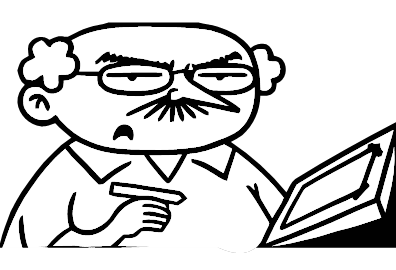"He therefore urged them to be men of courage, and out of love for their virtuous fathers who had tilled their land, and pulled up and cut down the noxious weeds which usually choke the crops, to make haste themselves at that present time to do the same. They must do this first, by killing the most powerful lords of the realm, then by slaying the lawyers, justiciars, and jurors of the land, and finally, by weeding out from their land any that they knew would in the future be harmful to the commonwealth. Thus they would in the end gain peace for themselves and security for the future, if after removing the magnates, there was equal freedom between them, and they each enjoyed the same nobility, equal dignity, and similar power." - Thomas Walsingham, Chronica maiora
He was a fascinating historical figure, being a priest he had a modicum of education and while we don't know much about John Ball, I'm sure he could have just lived a cozy life but he didn't. He was the only one of the tried leaders that was permitted to speak to defend himself which indicates that he had certain privileges of class unlike Jack Straw, another one of the leaders captured and executed. Ball got imprisoned multiple times, yet preached still (in the vernacular English rather than in Latin) after his release and was eventually forbidden to preach by the Archbishop of Canterbury. With his last imprisonment, he was broken out by rebelling peasants as they marched toward London.
What we do have of John Ball is secondhand accounts from chroniclers that are, of course, condemnatory of him, so the specifics of what he preached is tenuous. Apparently there were letters 'found' on a hanged rebel which are attested to him by Walsingham but again, they could be fabrications or true letters with exaggerated and stretched truths as often occurs with accounts by medieval chroniclers. Alongside his call for the abolition of class and the holding of property in common, he probably held some not very progressive viewpoints (one writing attested to him but again not confirmed for sure as his own, was not very kind to those born out of wedlock) but I consider him an incredibly important proto-socialist figure from history that preceded Thomas Müntzer by about a century. Interesting figure which we know little about and one of my faves from the Middle Ages.

"When Adam delved and Eve span, Who was then the gentleman? From the beginning all men by nature were created alike, and our bondage or servitude came in by the unjust oppression of naughty men. For if God would have had any bondsmen from the beginning, he would have appointed who would have had any bond and who free. And therefore I exhort you to consider that now the time is come, appointed to us by God, in which ye may, if ye will, cast off the yoke of bondage, and recover liberty." - John Ball
 My heart goes out to you
My heart goes out to you







The parlaying force shouldn't have listened to Richard II (accounts said that Wat Tyler ordered archers to fire) big mistake. Guillaume Cale of the Fr*nch Jacquerie believed the same, he was promised surity of safety when he was approached to come to terms, the French magnates broke their promise because they said that he wasn't under the social conventions of "chivalry", grabbed him and tortured him for days before executing him and dispersing the Jacquerie and raining hell on peasants in reprisal.